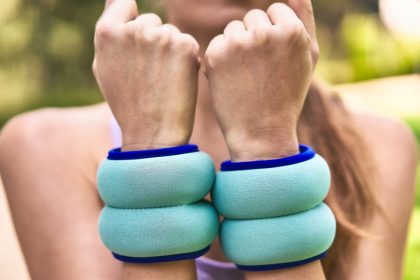With everything you’ve got going on in life, it can be hard to hit the recommended seven-plus hours of sleep each night. But new research suggests that regularly getting poor sleep may raise your risk of running injuries. And, you may need significantly more than seven hours to bring that injury risk down.
Of course, running injuries are complex and it’s a stretch to say that the reason you’re having IT band issues or knee pain is because your sleep has been subpar lately. But doctors say there’s something to this seemingly random connection between sleep and getting injured. As a result, “sleep should be treated as a performance priority, and not as an afterthought,” lead study author Jan de Jonge, PhD, a work and sports psychologist at Eindhoven University of Technology in the Netherlands, and an Adjunct Professor at the University of South Australia, tells SELF.
Here’s what the study found, plus why doctors say logging better sleep can help lower your running injury risk.
The study found a strong link between poor sleep and running injuries.
For the Applied Sciences study, Dr. de Jonge and his research team surveyed 425 recreational runners on their sleep habits and injuries. The researchers discovered that runners who said they slept the fewest hours each night compared to others, had lower sleep quality, faced more sleep problems, and were 1.78 times more likely to report injuries than those who got seven to nine hours of high-quality sleep a night. Poor sleepers also had a 68% chance of getting injured over a 12-month period.
The team found that those who consistently had good sleep duration and quality reported having fewer injuries. Because recreational runners also juggle things like work, school, home life, and personal responsibilities, Dr. de Jonge says they may be better off being at the upper end of the recommended range of seven to nine hours of sleep a night.
“This underscores how multidimensional ‘sleep health’—not just hours slept—plays a critical role in injury prevention,” Dr. de Jonge says.
What’s behind this?
The study didn’t look into why this might be the case—it simply found a link between poor sleep and a higher risk of running injuries. But doctors say there are likely a few things behind this.
“When you sleep less, your body’s ability to recover from a workout is diminished,” Joshua Scott, MD, a primary care sports medicine physician and co-director of Non-operative Orthopaedics and Sports Medicine at Cedars-Sinai Orthopaedics in Los Angeles, tells SELF. While you sleep, your body releases human growth hormone (HGH), which stimulates muscle repair. It also increases blood flow to deliver nutrients to your muscles, helping to heal micro-tears that are caused by exercise, Dr. Scott points out. But when you don’t get enough sleep, you don’t reap as much of these benefits.
“Also, when you’re fatigued, you start to make physical and mental mistakes with running and other sports that can lead to injury,” Dr. Scott says. That can mean doing things like misjudging the height of a curb and twisting an ankle or trying to run too fast before you’ve properly warmed up, raising your risk of pulling a muscle.
But this is not a new concept, Kimberly Fenn, PhD, principal investigator of the Sleep and Learning Lab professor in the Department of Psychology at Michigan State University tells SELF. “There is substantial evidence that sleep is critical for proper healing, either from illness or injury,” she says. “Furthermore, research focusing broadly on injury from athletics or sports has found that poor sleep is related to injury.” (This is just the first study to connect poor sleep to injury in runners.)
The solution can be slightly challenging for runners.
Fixing lack of sleep or problems with sleep is rarely as simple as telling someone to go to bed earlier, Dr. Scott says. (Although if you find you’re regularly getting into bed later than you’d like because you’re binge-watching shows on Netflix, cutting that out is an easy solution.) Dr. Fenn points out that runners also tend to face a “unique challenge” in that many tend to run in the morning before work or early to try to beat the heat in summer months, which can cut into sleep time.
But Dr. Fenn says it’s crucial to do what you can to stick with a consistent sleep schedule. “If you need to wake at 5 a.m. on Saturday for your long run, you should train your circadian system to wake at this time every morning,” she says. “If instead, you choose to wake at 8 a.m. or 9 a.m. every [weekday] morning, then you will surely be running after insufficient sleep on your [weekend] long run.” Fenn admits it can be tough to keep such a regimented schedule, but says it’s worth at least considering trying to optimize your performance and lower your risk of injury.
As for overall sleep quality, Dr. Scott recommends coming up with a consistent bedtime routine. “You want to do the same things every evening, along with avoiding electronics and screen time before laying down to go to sleep at night,” he says. He also suggests avoiding caffeine, alcohol, and large meals before bed, and making sure that your sleep environment is quiet and cool. “If you do those things, you’re not only going to get to sleep for longer, but you’ll get better-quality sleep,” he says. “That certainly can help reduce the risk of injury.”
Of course if you’ve tried all of that and you’re still struggling with sleep, it’s important to check in with a healthcare professional for an evaluation. There could be an underlying health condition behind your sub-par sleep, and it’s crucial to get to the bottom of it—both for your overall health and ability to run pain-free.
Related:
- The Best Workout to Do After a Bad Night’s Sleep
- 34 Core Exercises Top Trainers Swear By
- Does Running ‘Count’ as a Leg Workout?
Get more of SELF’s great service journalism delivered right to your inbox.







